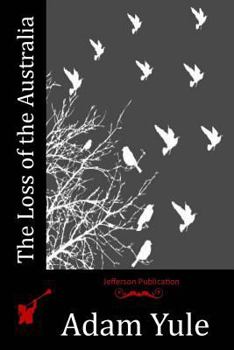The Loss of the Australia
Select Format
Select Condition 
Book Overview
"They that go down to the sea in ships, that do business in great waters, these men see the works of the Lord, and his wonders in the deep." The life of a sailor, beyond the lot of most other men, discloses to a reflecting mind an impressive series of divine mercies and judgments. In a calling so singularly chequered by varying scenes and changing incidents, life is spent amidst remarkable adventures and romantic deliverances, so as to invest its course with an unusual interest, and to crowd its experience with the most solemn and memorable instructions of Heaven. This description may be from another edition of this product.
Format:Hardcover
Language:English
ISBN:1570717753
ISBN13:9781570717758
Release Date:October 2004
Publisher:Sourcebooks
Length:624 Pages
Weight:2.51 lbs.
Dimensions:9.1" x 1.9" x 6.3"
Customer Reviews
4 customer ratings | 4 reviews
There are currently no reviews. Be the first to review this work.












